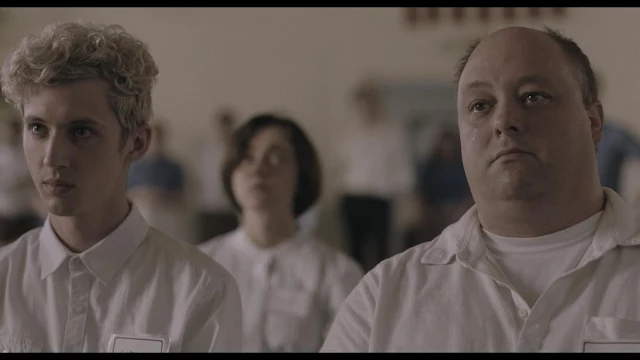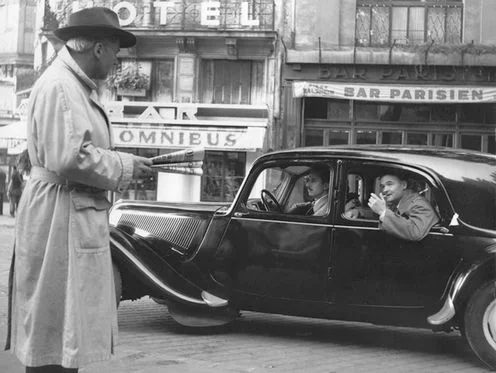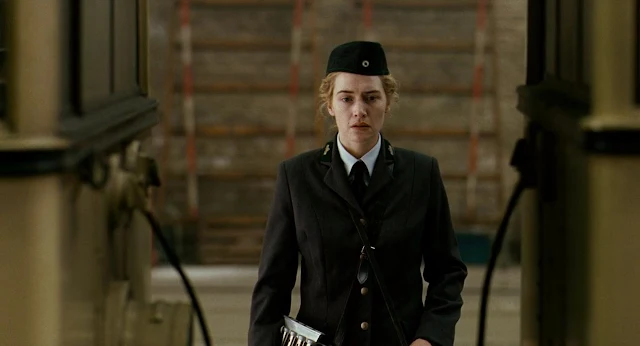A blog formerly known as Bookishness / By Charles Matthews
"Dazzled by so many and such marvelous inventions, the people of Macondo ... became indignant over the living images that the prosperous merchant Bruno Crespi projected in the theater with the lion-head ticket windows, for a character who had died and was buried in one film and for whose misfortune tears had been shed would reappear alive and transformed into an Arab in the next one. The audience, who had paid two cents apiece to share the difficulties of the actors, would not tolerate that outlandish fraud and they broke up the seats. The mayor, at the urging of Bruno Crespi, explained in a proclamation that the cinema was a machine of illusions that did not merit the emotional outbursts of the audience. With that discouraging explanation many ... decided not to return to the movies, considering that they already had too many troubles of their own to weep over the acted-out misfortunes of imaginary beings."--Gabriel García Márquez, One Hundred Years of Solitude
Search This Blog
Thursday, September 19, 2019
Boy Erased (Joel Edgerton, 2018)
Boy Erased (Joel Edgerton, 2018)
Cast: Lucas Hedges, Nicole Kidman, Russell Crowe, Joel Edgerton, Troye Sivan, Britton Sear, Xavier Dolan, Joe Alwyn, Flea, Cherry Jones. Screenplay: Joel Edgerton, based on a book by Garrard Conley. Cinematography: Eduard Grau. Production design: Chad Keith. Film editing: Jay Rabinowitz. Music: Danny Bensi, Saunder Jurriaans.
"Problem drama" is a kind of oxymoron. Problems have solutions; dramas have plots. In Boy Erased, the problem is "conversion therapy," the use of supposed psychological methods to convert gays and lesbians into heterosexuals. The solution, one adopted in the more forward-thinking parts of the United States, is to discredit and ban such attempts. Drama, on the other hand, depends on ambiguity and suspense, on shrewdly drawn characters, and on emotional and intellectual conflict. Boy Erased tries to get around the limitations of trying to tell a nuanced story about conversion therapy by casting highly skilled actors like Lucas Hedges and Nicole Kidman and Russell Crowe, who can provide the subtlety and ambiguity that the plot doesn't quite provide. Joel Edgerton's screenplay -- like his performance as the head "therapist" -- is just a little too careful, a little too afraid of tipping over into melodrama to be completely satisfying. The film doesn't want to portray its God-fearing Christians as villains, but only as people blinkered by their faith. It only suggests that the therapy center is a money-grubbing scam. The result is a tepid middle-of-the road movie that's mostly preaches to the choir. With a keenly critical point of view, Boy Erased could have been a piercingly revelatory film, not a watered-down docudrama made watchable by starry performances.
Wednesday, September 18, 2019
Bob le Flambeur (Jean-Pierre Melville, 1956)

Bob le Flambeur (Jean-Pierre Melville, 1956)
Cast: Roger Duchesne, Guy Decomble, Isabelle Corey, Daniel Cauchy, André Garey, Gérard Buhr, Claude Cerval, Colette Fleury, René Havard, Simone Paris, Howard Vernon. Screenplay: Jean-Pierre Melville, August Le Breton. Cinematography: Henri Decaë. Production design: Claude Bouxin. Film editing: Monique Bonnot. Music: Eddie Barclay, Jo Boyer.
Sometimes the pleasures you get from a movie are not the intended ones of plot or action or dialogue. For example, I get a great delight from hearing how the French actors in Bob le Flambeur pronounce the title character's name: It's closer to "Bub" than to the American "Bahb." But even that incidental detail is somehow essential to what the film is all about: a reworking of American culture -- the gangster movie -- in the French manner. It would be different somehow if the title character were named Jules or Pierre or Marcel, but calling him Bob, even with a French accent, sets up all sorts of subliminal reverberations. It's intriguing that the foreign filmmakers who most successfully translated the gangster genre to their own cultures were the French and the Japanese. The latter reworked the figure of the samurai into that of the yakuza, while the former turned the existential loner into the outlaw. Jean-Pierre Melville's film is a celebrated precursor of the French New Wave, to which Melville himself became central in 1967 when he gave Alain Delon Bob's fedora and trenchcoat and made Le Samouraï, thereby merging all three cinematic gangster mythologies. For my part, the chief delight of Bob le Flambeur is its essential Frenchness, particularly Henri Decaë's lovingly crafted images of Montmartre, as masterly in their way as those of Lautrec or Utrillo.
Tuesday, September 17, 2019
The Reader (Stephen Daldry, 2008)
The Reader (Stephen Daldry, 2008)
Cast: Kate Winslet, Ralph Fiennes, David Kross, Bruno Ganz, Lena Olin, Matthias Habich, Hannah Herzsprung, Susanne Lothar. Screenplay: David Hare, based on a novel by Bernhard Schlink. Cinematography: Roger Deakins, Chris Menges. Production design: Brigitte Broch. Film editing: Claire Simpson. Music: Nico Muhly.
I haven't read the novel by Bernhard Schlink, but it seems to have presented the filmmakers with two problems they never quite solved. One is technical: How do you deal with the structuring of the story as the reminiscences of a middle-aged man about his youthful affair with an older woman? Do you cast one actor and make him younger or older with makeup? (Digital aging or de-aging, despite its use in films like Peyton Reed's 2015 film Ant-Man, in which Michael Douglas was "youthened," hasn't quite reached the level needed for a film like The Reader, in which Michael Berg ranges from his mid-teens to his 50s.) Or do you cast two actors, even though the audience knows that 18-year-old David Kross could never grow up to look like Ralph Fiennes? The solution reached by the producers of The Reader was to trust in an audience's suspension of disbelief and the skill of the actors. Thanks to the latter, it almost works. But a more serious obstacle is how to deal with the moral complexities presented by any story that involves the Holocaust. In The Reader, we're presented with the problem faced by Michael Berg: reacting to the revelation that the woman who provided his sexual initiation was a war criminal. On the page, such an ethical dilemma can be explored in many ways because the reader has time to reflect on its implications. But movies demand a more immediate and visceral reaction, and the film version of The Reader runs the risk of trivializing the moral issues it raises. Are we to excuse Hanna Schmitz's heinous actions because she was struggling with her own insecurities? Are we to think that literacy is a cure for moral blindness? David Hare's screenplay is too intelligent and Stephen Daldry's direction too sure-footed to keep us from veering off into such reductions to absurdity, but nevertheless the filmmakers seem to me to have bitten off more than they can chew in taking on a story that can't be summed up glibly. Fortunately, the acting is uniformly fine, and the film earned Kate Winslet the Oscar that had eluded her on five previous nominations. Kross is exceptionally good as well, convincingly moving from love-smitten adolescent to conscience-stricken young adult. Fiennes does what he can with the thankless role of vehicle for an extended flashback.
Subscribe to:
Comments (Atom)




























































